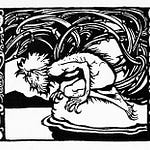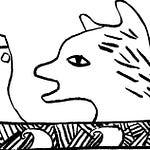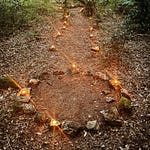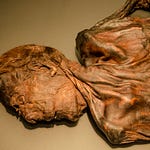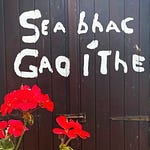Earth is crammed with Heaven.
And every bush aflame with God.
But only those who see take off their shoes.
Elizabeth Barrett Browning (1806-61)
It was like walking through a revitalising storm reading the responses to The Fall & The Underworld essay. Whilst it was hugely engaging – and I read and considered everything – I thought I’d write a few words here in response rather than throughout the comments this time.
Firstly, to those struggling with the need for a Christian frame on these ongoing discussions you have my deepest sympathy. As has been said by many before me, “Tell me the kind of Christianity you don’t like. I probably don’t like it either.” Especially when it comes to the actions of the church – both good and bad – it’s not my brief to defend it.
There’s no persuasion I would attempt, no apologetic, in that regard. I’m not really in the business of argument – others can do that for all sorts of issues much better than me – but I am in a wonderment/sustained soulful disturbance with this Yeshua. Apocálypsis. And that’s an encounter not a theory. An event not a commentary. Anything less would not have rattled my bone-house at this age.
Twenty-five years I’ve been a wilderness rites of passage guide. Four years living in a tent. I think the notion of gods and goddesses dwelling in and amongst rocks, rivers, forests and mountains is not a remotely naive idea but one that fundamentally rehydrates appropriate levels of ecological reverence. It sometimes depresses me to think of the Church as the body of Christ (for reasons Christians and all of us understand), but cormorants, dog rose and lightning storms, less so. I don’t have to agonise over this theologically, I know it’s a good thing for my head. It has more love in it. There was a lot of this emphasis in the celebratory wonder of the early Celtic church.
But Yeshua is complex: as Cynthia Bourgeault (popular with a few of us) in The Wisdom Jesus suggests:
All four gospels confirm that immediately after his baptism he entered the wilderness for his forty days of testing and pruning. But what looks like an ascetic from the outside may not prove to be so from the inside. From his subsequent actions we come to understand that Jesus was not so much denying himself earthly food but feeding on the Word of God. He was being formed, inwardly initiated into the radical new path he would soon reveal to the world…he moved into the marketplace: taught, healed, laughed and danced and dined; lived among the people as brother and friend. Whatever he learned in the wilderness seems to have pushed him through and beyond the ascetic path.
The reason Jesus and John are paired in the gospels is not to show how they are alike, but to emphasise how they are different.
*
There’s no box you can contain him in. I dearly wish I’d experienced Yeshua like that - with his salty nuance - as I sat through the thousand or so services I attended till I was seventeen. Maybe it wasn’t time. If it had been, the horses of my imagination would have been out of the corral, into the desert and the rain. In other words I would have felt the massive in Christ, the uncontainable, the devastation of care he brought with him, the sheer wyrdness of the Druid.
I thought I was doing quite well without him till he started showing up in forests and telling me he’d been alongside the whole time. That’s been a lot to calibrate. I could have kept quiet about it, avoided a lot less heat in other areas of my life, but I’m not the type.
So what I’m saying really is thank you.
Thank you for having the conversation in all its glorious, tear-strewn, rambunctious forms. There’s a great deal of heart, intelligence and real enquiry in it, no matter what is being said. It has the rub of real stuff in it, discomfort sometimes, but also excitement. Some wonderful back and forth’s from differing observations we all have.
It’s a lively parish, no?
A few books on the bedside table are: She Who Is: The Mystery of God in Feminist Theological Discourse - Elizabeth A. Johnson, The Sunlilies: Eastern Orthodoxy as a Radical Counterculture - Graham Pardun, When God Was a Bird: Christianity, Animism and the Re-enchantment of the World - Mark I. Wallace, Intimations of Christianity Among the Ancient Greeks - Simone Weil, The Gospel of John: Volume 1, Chapters 1-7 - William Barclay.
And here’s something different today – a Breton Fairy Tale, The Pale Lady. There’s a scatter of notes at the end, some from a walk I was taking along the Dart whilst telling it, trying to persuade the salmon to return again to a very particular stretch. There will be lots of wider themes in the next few months, not just the above.
I’m going to slightly alter the pattern of delivery of The House of Beasts & Vines in a few weeks – to return to my original plan of fortnightly rather than weekly. I’m a little rushed off my feet. But – I aim to deliver longer audio (and some essays will be longer too), so you’ll get the same amount of content, just giving me a moment longer to brood on it. I’m off up into the wilds of Dartmoor to make recordings for the months ahead.
On April 23rd, in the company of river-trout, herons and a few other close friends I will be baptised in deep, ancestral waters and give myself entirely to my teacher, my Ollamh, my chief-bard. This month and its wanderings, reflections and readings up on the moor is preparation for that.
Good cheer all,
Martin







